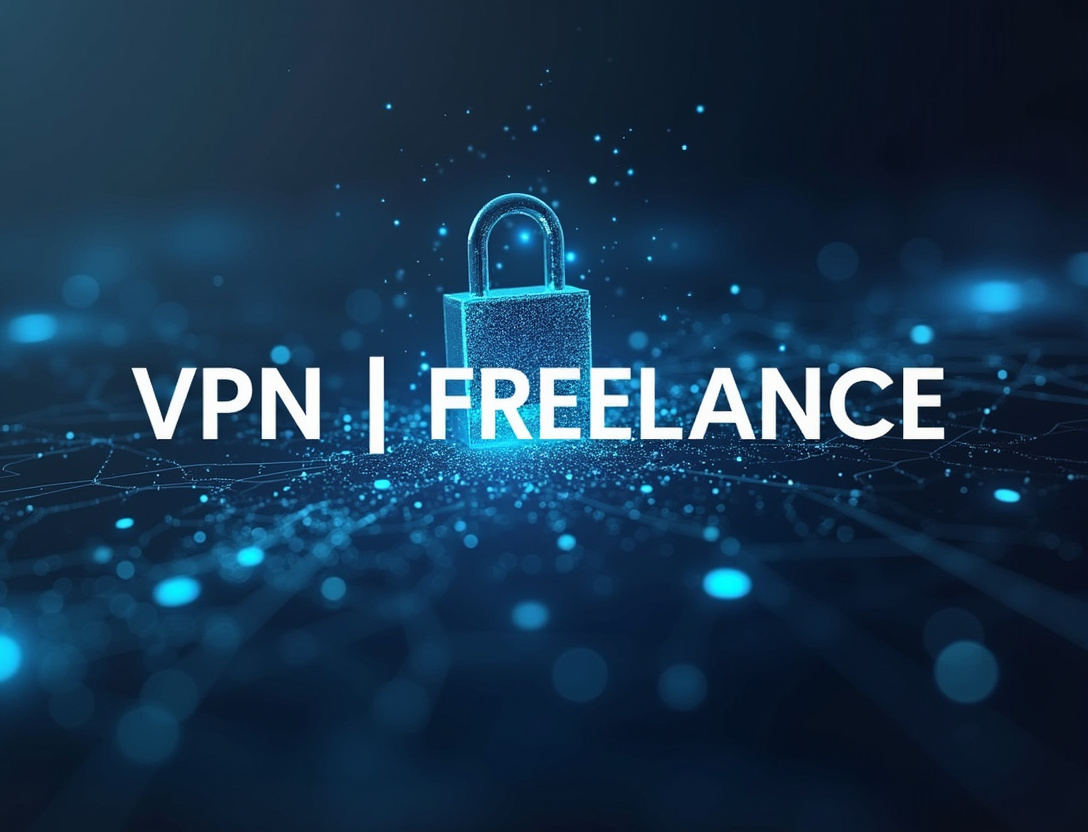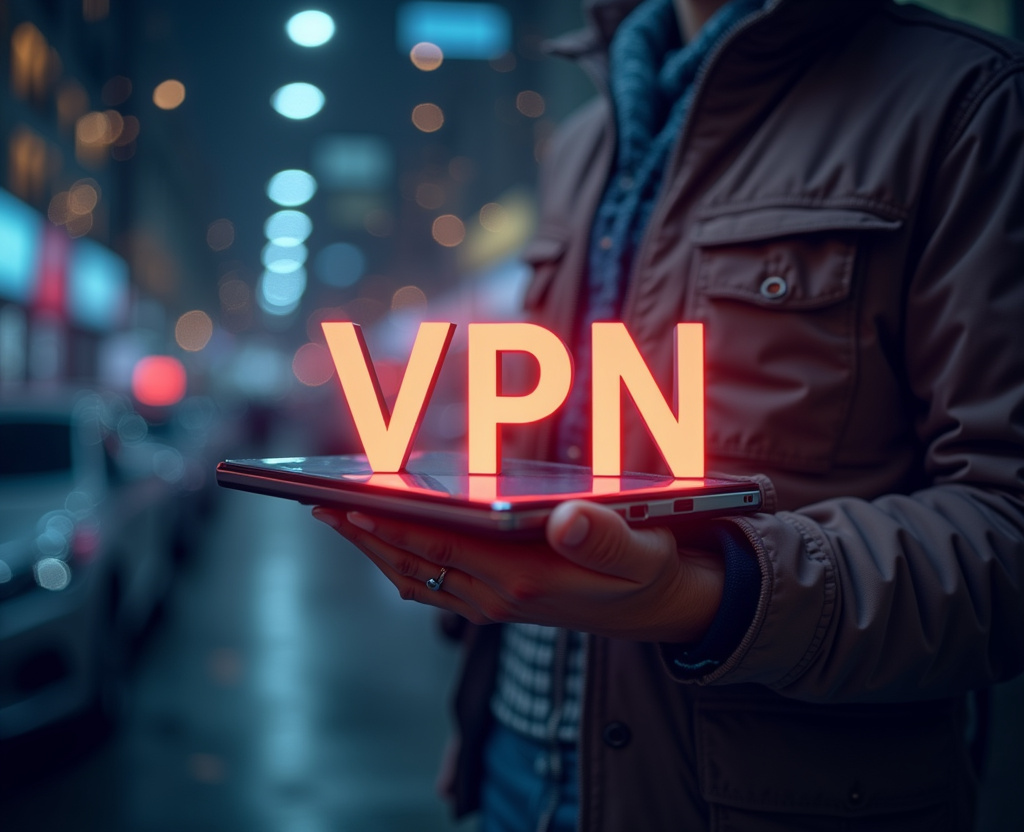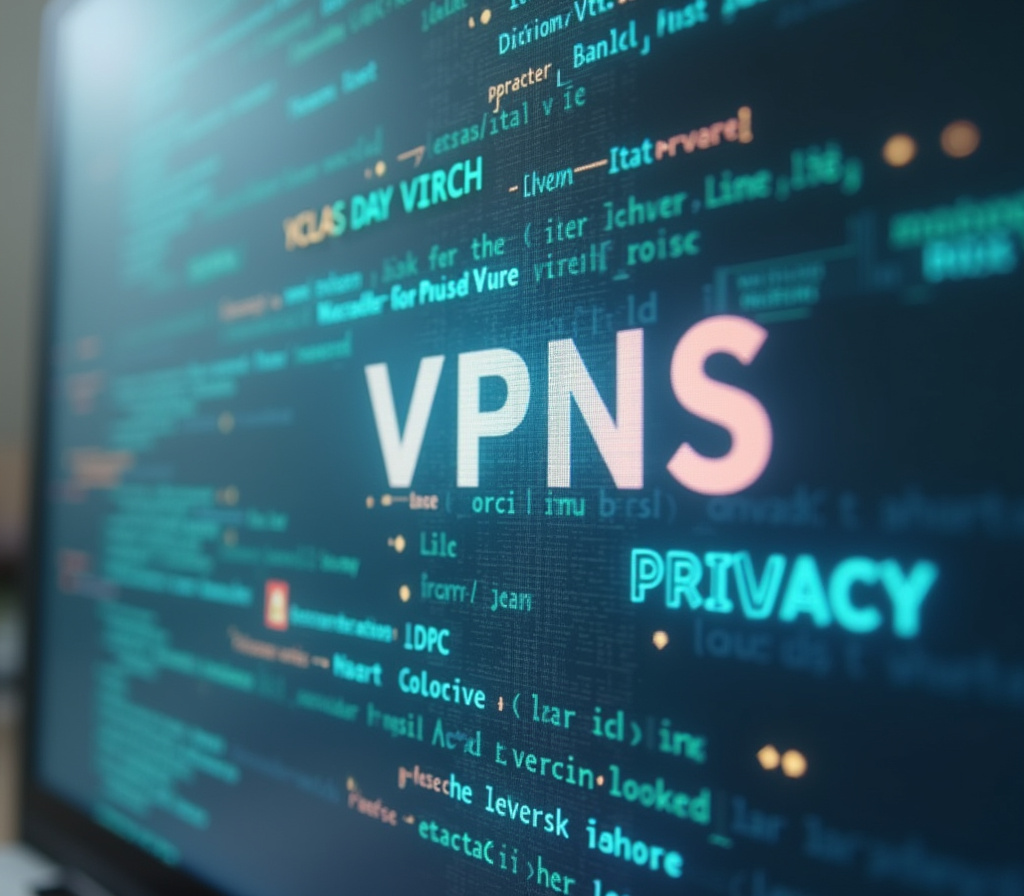Understanding Multi-Hop VPN: Double Security for Users

Table of Contents
Introduction to Multi-Hop VPNs: Enhancing Online Privacy
In the ever-evolving landscape of the internet, where data breaches and privacy infringements are commonplace, the need for robust online security measures has never been more critical. While Virtual Private Networks (VPNs) have become a popular tool for individuals seeking to protect their online activities, the traditional single-server VPN may no longer offer sufficient protection against sophisticated surveillance and cyber threats. Enter the multi-hop VPN, a cutting-edge technology that provides a far more potent layer of protection.
This article embarks on a deep dive into the world of multi-hop VPNs, dissecting their functionality, benefits, and ideal use cases. Our primary focus will be to understand how multi-hop VPNs deliver double security for users through a concept known as layered protection, a key strategy for achieving robust online privacy. We will begin by examining the fundamental principles of online privacy, as well as the limitations and vulnerabilities inherent in standard, single-server VPN connections.
This examination will serve as a critical foundation for comprehending the significant advantages of multi-hop technology. Furthermore, we will analyze how VPN layers, the core components of a multi-hop architecture, work synergistically to create a formidable defense against various forms of online tracking and surveillance. This includes a detailed look at how data is encrypted and rerouted through multiple servers, obscuring the user's true location and making it exceptionally challenging for malicious actors to trace their online activities.
The discussion will extend to real-world scenarios where the deployment of multi-hop VPNs is not just advantageous but essential. This includes the protection of sensitive business communications, the safeguarding of journalistic sources in high-risk environments, and the anonymization of political activism in countries with oppressive regimes. As we progress, it will become evident that multi-hop VPNs represent a paradigm shift in the approach to online security, offering a level of protection that surpasses the capabilities of traditional VPN solutions.
This advanced technology empowers users to take control of their digital footprint, providing them with the confidence to navigate the online world with greater security and peace of mind. In a climate where government surveillance, corporate data collection, and cybercrime are rampant, the awareness and adoption of multi-hop VPNs can be seen as a crucial step toward reclaiming online privacy and safeguarding fundamental rights. The sophistication of modern surveillance technologies demands a proactive and layered approach to security, and this is precisely what multi-hop VPNs offer.
By understanding the nuances of this innovative technology, users can make informed decisions about their online security and effectively mitigate the risks associated with an increasingly interconnected and surveilled world. Ultimately, this article aims to equip readers with the knowledge necessary to understand how multi-hop VPNs enhance online privacy through double security and layered protection, paving the way for a more secure and private digital future.
How Multi-Hop VPN Works: Chaining Servers for Anonymity
To fully grasp the significance of multi-hop VPNs, it’s crucial to understand the mechanics that underpin their enhanced security features. Unlike traditional VPNs that route your internet traffic through a single server, a multi-hop VPN employs a series of servers, strategically positioned across different geographical locations, to create a layered pathway for your data. This process initiates when your device establishes a connection with the first VPN server in the chain.
This initial server immediately encrypts your data, transforming it into an unreadable format that safeguards it from potential eavesdroppers. However, unlike a standard VPN, rather than directly forwarding this encrypted data to its final destination, the server relays it to the next server in the pre-determined multi-hop sequence. This intermediary server then decrypts the outer layer of encryption, revealing another layer of encrypted data.
It then re-encrypts this data with a new, unique encryption key and forwards it to the subsequent server in the chain. This cascading process of encryption, decryption, and re-encryption continues until the data finally reaches the exit server – the last server in the chain – which then decrypts the final layer of encryption and sends the data to its intended destination on the internet. This intricate series of hops and encryption layers makes it exponentially more challenging for anyone attempting to intercept or trace your online activities.
Each server in the chain only knows the IP address of the server that immediately preceded it and the server that will receive the data next. No single server has visibility into the entire path of your data, effectively isolating the individual steps and preventing a comprehensive overview of your online journey. The key advantage lies in the anonymity this layered approach provides.
By masking your true IP address behind a series of strategically chosen server locations, a multi-hop VPN makes it exceedingly difficult to pinpoint your actual geographical location or link your online activities back to your personal identity. This is particularly critical in situations where you need to protect your identity from surveillance or censorship, such as when accessing sensitive information, engaging in political activism, or communicating with confidential sources. Furthermore, the layered encryption significantly reduces the risk of data breaches.
Even if one of the servers in the chain were to be compromised, the attacker would only gain access to a segment of your data and would be unable to trace the entire connection back to your original IP address. The other layers of encryption would continue to protect your data, preventing a complete compromise of your online privacy. This resilience to server compromise is a major advantage of multi-hop VPNs over single-server VPNs, which can be vulnerable if their sole connection point is breached.
This layered security can be visualized like the layers of an onion; each layer representing a server and a level of encryption. Peeling back one layer only reveals another, making it impossible to reach the core – your actual identity and online activities – without passing through multiple security barriers. This analogy encapsulates the essence of multi-hop VPNs and the enhanced security they offer.
Benefits of Multi-Hop VPN: Increased Security and Circumvention
The most compelling argument for adopting a multi-hop VPN lies in the profound enhancement of online privacy it delivers through its innovative double security approach. Traditional VPNs offer a degree of protection by masking your IP address and encrypting your data stream, but their reliance on a single server introduces inherent vulnerabilities. A multi-hop VPN, in contrast, amplifies these safeguards by implementing VPN layers, creating a shield of anonymity that is far more resistant to intrusion.
The core benefit of this layered protection is the dramatic reduction in the traceability of your online activities. As your data traverses multiple servers across diverse geographical locations, each hop further obscures your origin and complicates the task of linking your online actions back to your true IP address. This is particularly invaluable for individuals operating in high-risk environments, such as journalists covering sensitive topics, political dissidents challenging oppressive regimes, and activists organizing against powerful interests.
For these individuals, maintaining anonymity is not merely a matter of convenience but often a matter of safety and survival. The layered security of a multi-hop VPN provides a crucial shield against surveillance and potential repercussions. Beyond simply masking your IP address, multi-hop VPNs also fortify your defenses against sophisticated surveillance techniques.
Governments, intelligence agencies, and even malicious corporations employ advanced methods for monitoring internet traffic, including traffic analysis, deep packet inspection, and correlation attacks. These techniques aim to identify patterns and connections in your online activity to deanonymize you and potentially compromise your security. A multi-hop VPN effectively neutralizes these threats by disrupting the flow of information and making it exceptionally difficult to correlate your input and output data.
The layered encryption and cascaded routing provided by a multi-hop VPN create a labyrinthine path that confounds surveillance efforts. Even if an adversary manages to intercept your data at one point along the chain, they will only gain access to a fragmented piece of the puzzle, lacking the context and information necessary to trace your activity back to its source. This resilience to surveillance techniques makes multi-hop VPNs an indispensable tool for anyone seeking to protect their online privacy in the face of increasingly sophisticated monitoring capabilities.
Furthermore, multi-hop VPNs mitigate the risks associated with compromised VPN servers. While reputable VPN providers invest heavily in security measures to protect their infrastructure, the possibility of a server being compromised—whether through hacking, government coercion, or internal vulnerabilities—cannot be entirely eliminated. In a single-server VPN setup, a compromised server represents a single point of failure.
If an attacker gains access to that server, they could potentially access your traffic data, deanonymize you, and compromise your security. However, with a multi-hop VPN, the impact of a compromised server is significantly reduced. Even if one server in the chain falls victim to an attack, the attacker would only gain access to a limited segment of your traffic and would still face the daunting task of tracing the connection back to your original IP address through multiple layers of encryption and routing.
This layered approach provides a crucial safety net, ensuring that your online privacy remains protected even in the event of a security breach on one of the VPN servers.
Use Cases for Multi-Hop VPN: Who Needs Double the Protection?
While the benefits of multi-hop VPNs in enhancing online privacy are undeniable, understanding their potential drawbacks and the scenarios where they prove most valuable is crucial. One of the primary considerations when opting for a multi-hop VPN is the potential impact on internet speed. Routing your traffic through multiple servers inevitably adds latency, as each hop introduces additional processing time and distance.
This can result in slower download and upload speeds, which may be noticeable when engaging in bandwidth-intensive activities such as streaming high-definition video, online gaming, or transferring large files. The extent of the speed reduction can vary depending on factors such as the distance between the servers, the server load, and the quality of the network infrastructure. Therefore, it's essential to carefully assess your individual needs and usage patterns to determine whether the enhanced security of a multi-hop VPN outweighs the potential performance trade-offs.
Another factor to consider is the cost. Multi-hop VPN services often come at a higher price point than single-server VPNs, reflecting the increased infrastructure and resources required to maintain a multi-server network. While the added security may be worth the investment for individuals with specific privacy concerns, it may not be necessary for users with more basic online needs.
It's also important to note that not all multi-hop VPN implementations are created equal. The level of security and anonymity provided by a multi-hop VPN depends heavily on the quality of the VPN provider, the geographical distribution of the servers, and the encryption protocols used. It's crucial to choose a reputable VPN provider that has a proven track record of security and privacy, and that offers a clear and transparent privacy policy.
Now, let's consider scenarios where the use of a multi-hop VPN is particularly valuable. In situations where individuals face a high risk of surveillance or censorship, such as journalists reporting from conflict zones, political activists challenging authoritarian regimes, or whistleblowers exposing corporate malfeasance, a multi-hop VPN can provide a crucial layer of protection. The enhanced anonymity and resistance to traffic analysis offered by multi-hop VPNs can significantly reduce the risk of identification and potential repercussions.
For businesses handling sensitive data, such as financial institutions, healthcare organizations, or law firms, a multi-hop VPN can provide a robust security measure to protect confidential information from unauthorized access or interception. The layered encryption and routing can help prevent data breaches and ensure compliance with data privacy regulations. Individuals using public Wi-Fi networks, which are notoriously insecure, can benefit from the added security of a multi-hop VPN.
By routing their traffic through multiple servers, they can protect their data from potential eavesdropping and mitigate the risk of identity theft or malware infection. Gamers who want to protect themselves from DDoS attacks or hide their IP addresses can use multi-hop VPNs.
In conclusion, the escalating threats to online privacy in today's digital landscape necessitate a proactive and layered approach to security. While traditional single-server VPNs offer a basic level of protection, they may fall short in safeguarding against sophisticated surveillance and cyberattacks. Multi-hop VPNs emerge as a powerful solution, providing double security for users through their innovative use of VPN layers.
By routing internet traffic through multiple servers, multi-hop VPNs create a formidable defense against traceability, enhance anonymity, and mitigate the risks associated with compromised servers. The key advantage lies in the concept of layered protection. Each server in the chain adds a new layer of encryption, making it exponentially more challenging for anyone to intercept or trace your online activities back to your original IP address.
This cascaded routing obfuscates your location and disrupts traffic analysis efforts, providing a significantly higher level of privacy compared to single-server VPNs. While multi-hop VPNs may introduce a slight performance trade-off in terms of internet speed, the added security benefits often outweigh this drawback, especially for individuals and organizations with heightened privacy concerns. The decision to adopt a multi-hop VPN depends on individual needs and usage patterns.
For journalists, activists, political dissidents, and businesses handling sensitive data, the enhanced security and anonymity offered by multi-hop VPNs are invaluable. In situations where the risk of surveillance, censorship, or data breaches is high, the layered protection of a multi-hop VPN provides a critical shield against potential threats. However, for users with more basic online needs, the added complexity and cost of a multi-hop VPN may not be necessary.
A standard single-server VPN may suffice for casual browsing, streaming, and other non-sensitive activities. Ultimately, the choice depends on a careful assessment of your risk profile and the level of privacy you require. As the digital landscape continues to evolve and new threats emerge, it's essential to stay informed about the latest security technologies and best practices.
Multi-hop VPNs represent a significant step forward in the ongoing battle for online privacy, empowering users to take control of their digital footprint and protect themselves from the ever-present risks of the internet. By understanding the mechanics of multi-hop VPNs, the benefits of layered protection, and the scenarios where they prove most valuable, individuals and organizations can make informed decisions about their online security and navigate the digital world with greater confidence and peace of mind. The future of online privacy hinges on the adoption of robust security measures, and multi-hop VPNs are poised to play a crucial role in safeguarding our digital rights and freedoms.
As technology advances, so too must our defenses, and multi-hop VPNs offer a cutting-edge solution for protecting our online privacy in an increasingly surveilled and interconnected world. Embracing this technology is not just about protecting our data; it's about preserving our fundamental right to privacy in the digital age.
Stay Updated
Get the latest VPN news, tips, and exclusive deals to your inbox.




